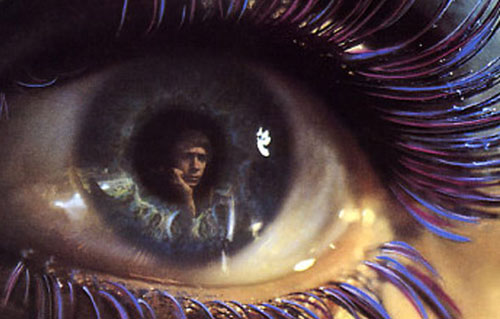Preface
Last week I wrote about boredom, something with negative connotations. This week I wish to write about something that also has, rightfully or wrongfully, negative connotations- loneliness. In this blog I hope to, occasionally, touch upon, what I believe to be serious, subjects that make you think, also I wish to attempt to show different perspectives to things which you may or may not have considered. Like any television series there will be an underlying thread but with stand alone entries also.
Any comments are welcome below.
Thank you for reading
——-

A few days ago I was speaking to a gentleman who works for the local charity Assert. Assert works with people who suffer from Aspergers. Aspergers, named after the man who discovered it, is a serious disability where people, with above average intellectual intelligence, cannot understand the basics of the social world- relationships and interactions- and subsequently become isolated. The charity has five full time members of staff and caters to approximately 450 people. The charity was founded by three mothers who realised that there wasn’t any help for their children who suffered from the disability. The gentleman told me how, even today, the schooling system is not equipped to notice/help those with Aspergers making the children feel even more isolated. The gentleman said that there were even people in their 50s, just diagnosed, who use the charity and, for the first time, managed to make friends.
If one considers the symptoms associated with Aspergers then considers the history of the world, one will see a distinct correlation between discovery and those who display the symptoms. Possibly the most famous one would be Albert Einstein. Einstein once stated that “I live in that solitude which is painful in youth, but delicious in the years of maturity” here he is showing that instead of pitying them, these “people…so much accustomed to being alone in self communion that they do not at all compare themselves with others, but spin out their soliloquising life in a quiet, happy mood, conversing pleasantly, and even hilariously, with themselves” and one must not “…therefore, grudge certain persons their loneliness or foolishly commiserate (pity) them on that account, as is so often done.” For they are free spirits who “who live by knowledge alone…and will gladly content themselves, for instance, with a small post or an income that is just sufficient to enable them to live; for they will arrange to live in such a manner that a great change of outward prosperity, even an overthrow of the political order, would not cause an overthrow of their life. To all these things they devote as little energy as possible in order that with their whole accumulated strength, and with a long breath, they may dive into the element of knowledge. In his mode of life and thought there is a refined heroism, which scorns to offer itself to the great mob reverence, as its coarser brother does, and passes quietly through and out, of the world.” (the above quotes coming from Human, all too Human by Nietzsche)
As with all things perspective is important. There is a saying that poets suffer because they take the cream off the top of their lives and put it into their work but are their lives ‘bad’ because of this? Or is it because they live in a world that they do not understand and visa-versa?
The man accredited with creating the ‘20th Century’ is the scientist Nikola Tesla, yet Telsa was also an interesting man away from science. He lived in perpetual solitude- women threw themselves at him but, at first, he had them on a pedestal and then, as he grew older, he considered them equal and nothing of interest, he was celibate as he considered coitus a hindrance to scientific developments (given his station in the history of the world one must wonder!) Yet even Tesla suffered with loneliness. Living in a hotel, he would find injured pidgins and take them home to care for them. One he even fell in love with and stated that ‘she and I loved with as much love as any man and woman’. Should we pity this man who seemingly suffered with what, one might say, social problems? I don’t see why. He was a man who seems to have been very happy with who he was and we should focus on this rather than our expectations of him.
Nabokov wrote a biography about Gogol. In it he stated his contemporaries complained that he was “secretive” and “mysterious” and Nabokov adds “but still a genius” (at this point I literally threw the book across the room in disgust- sorry book!) Gogol was seemingly self-conscious. He had a large nose that dominated his face and how people conceived him (or how he conceived people conceiving him)- he even wrote a short story about how his nose ran away and took over his life, living it better than he- yet he seems to have been given comparatively little thought as to the brilliance of his work (Dostoyevsky adored him).
There is big business in loneliness. This is summed up in the 1960 Anita O’Day with the Billy May Orchestra’s song “Ten Cents a Dance”, a song about how lonely men could hire a girl for a dance at the dancehall. This song, plus other products, market loneliness as a sin and offer ways of ending it (dating websites, fashion etc, the vulgar book The Rules which tell women how to ‘play’ men with regards to dating) but why not cherish the differences and accept people (and yourself) for who they (and you) are and try to understand that loneliness is not a good or bad thing, rather it is a state of being and should be cherished for if the individual is well tended to then such things can do no harm.